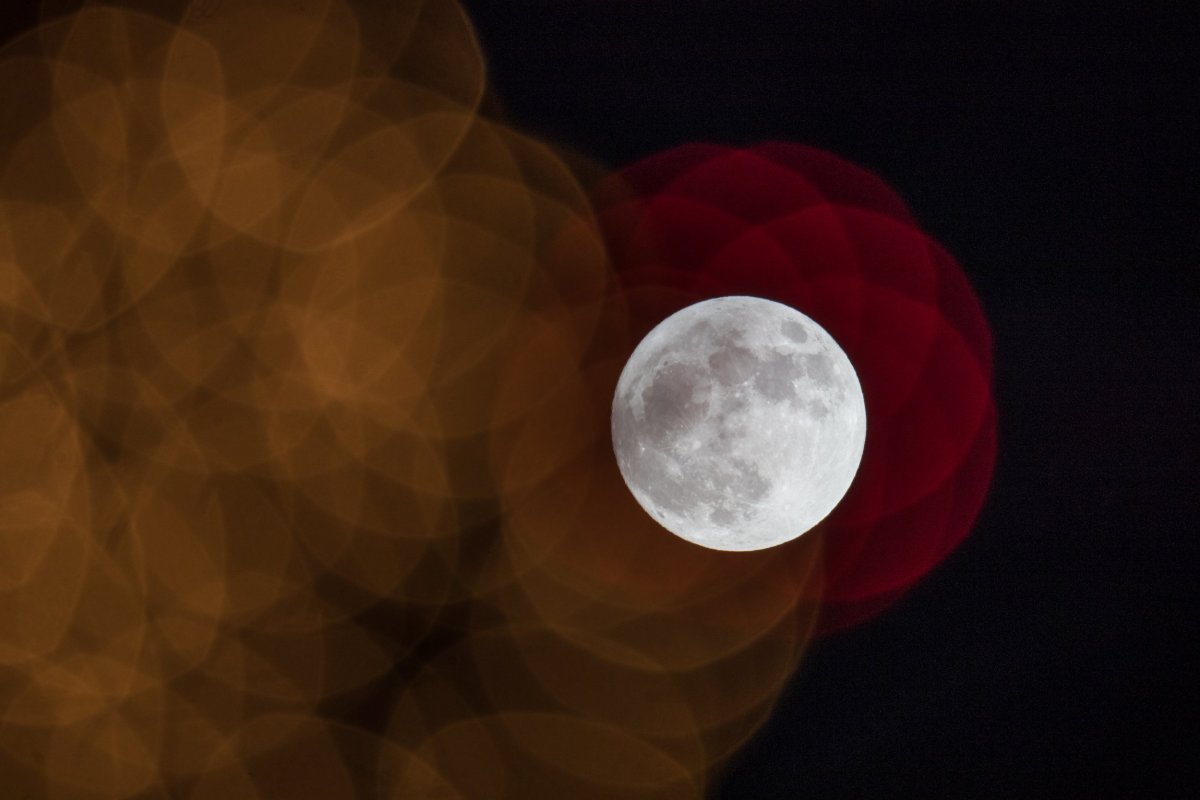The full moon this January is expected to be a bit more spectacular than most years because it will also be a supermoon and there's a total lunar eclipse on the agenda as well.
But each January, the moon is called the full wolf moon whether or not it's a supermoon or if there's an eclipse expected. Just like every other full moon of the year, the full moon in January gets its own name specially assigned. Usually, the names have something to do with the time of the year, the seasons or some sort of event happening that month.
This month the moon will be full just after midnight Monday for those on the east coast. For those on the west coast, it will still be Sunday evening. The full moon will reach fullness at 12:16 a.m. EST, which is 9:16 p.m. PST.

Due to all of the lunar events happening at once this moon is being called the January wolf super blood moon, or some variation of that. That name can be broken down into several parts, the "blood moon," the "super moon," and the "wolf moon."
Historically the term "full wolf moon" was created because in January the wolves would howl in hunger in the dead of winter during the month of January. The name goes back to colonial times in the United States as well as Native American times, according to The Old Farmer's Almanac.
The term "blood moon" comes from the eclipse that's expected to happen just hours before the full moon. The eclipse is expected to be visible from parts of North, Central and South Americas at 9:35 p.m. EST.
When a lunar eclipse happens the Earth moves between the sun and the moon, meaning the light from the sun that usually illuminates the moon is blocked. But some light makes its way around the Earth and through the Earth's atmosphere to reach the moon and the result is a red coloring on the moon. The dark reddish orange hue grants the moon the term "blood moon."
The term "super moon" is simply due to the fact that the full moon will appear a little bit larger than usual due to the fact that it will be in a point in its orbit where it's close to Earth.
All of these aspects of the full moon expected this weekend are what gives the January full wolf moon the full name of the January full wolf super blood moon.
Uncommon Knowledge
Newsweek is committed to challenging conventional wisdom and finding connections in the search for common ground.
Newsweek is committed to challenging conventional wisdom and finding connections in the search for common ground.
About the writer
Nina was a breaking news reporter. She previously worked at Business Insider, The Boston Globe, and Boston.com.
To read how Newsweek uses AI as a newsroom tool, Click here.








